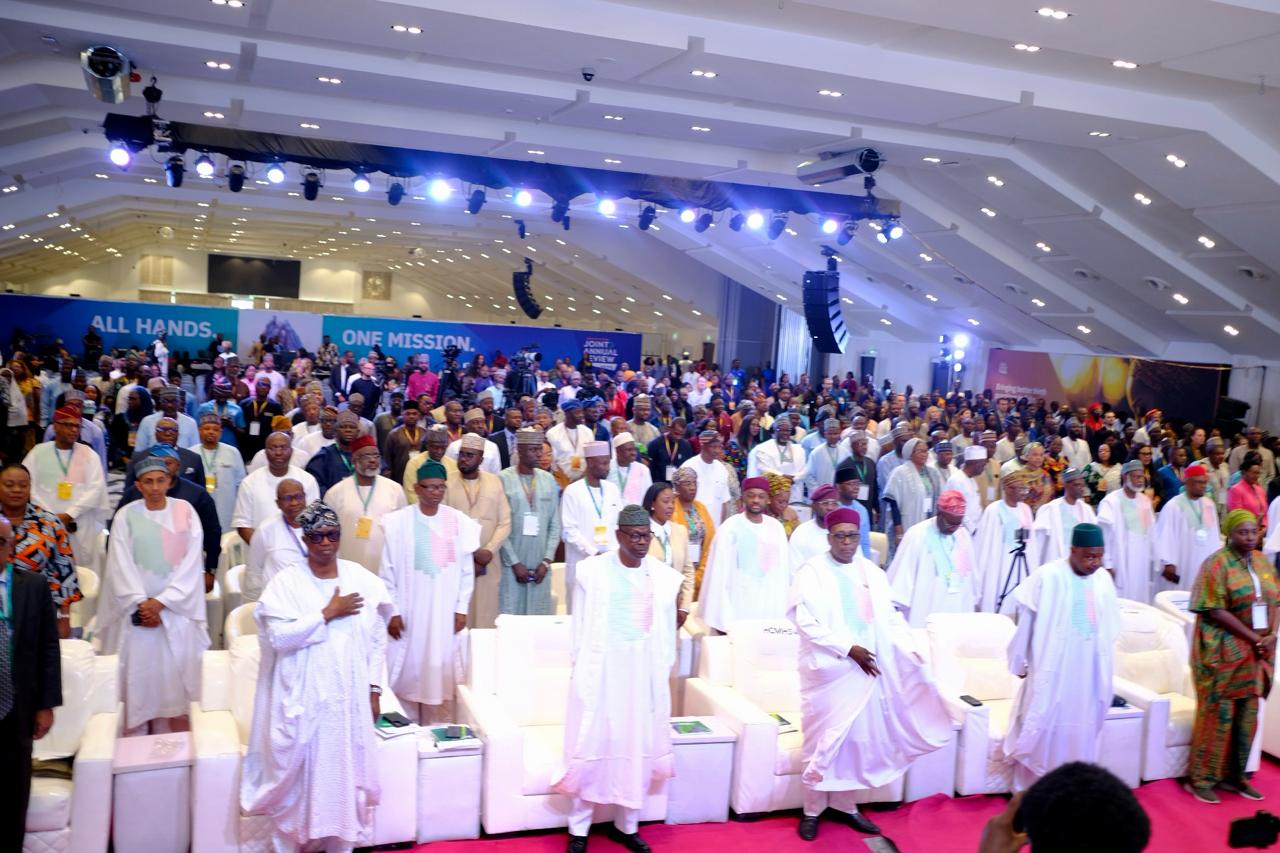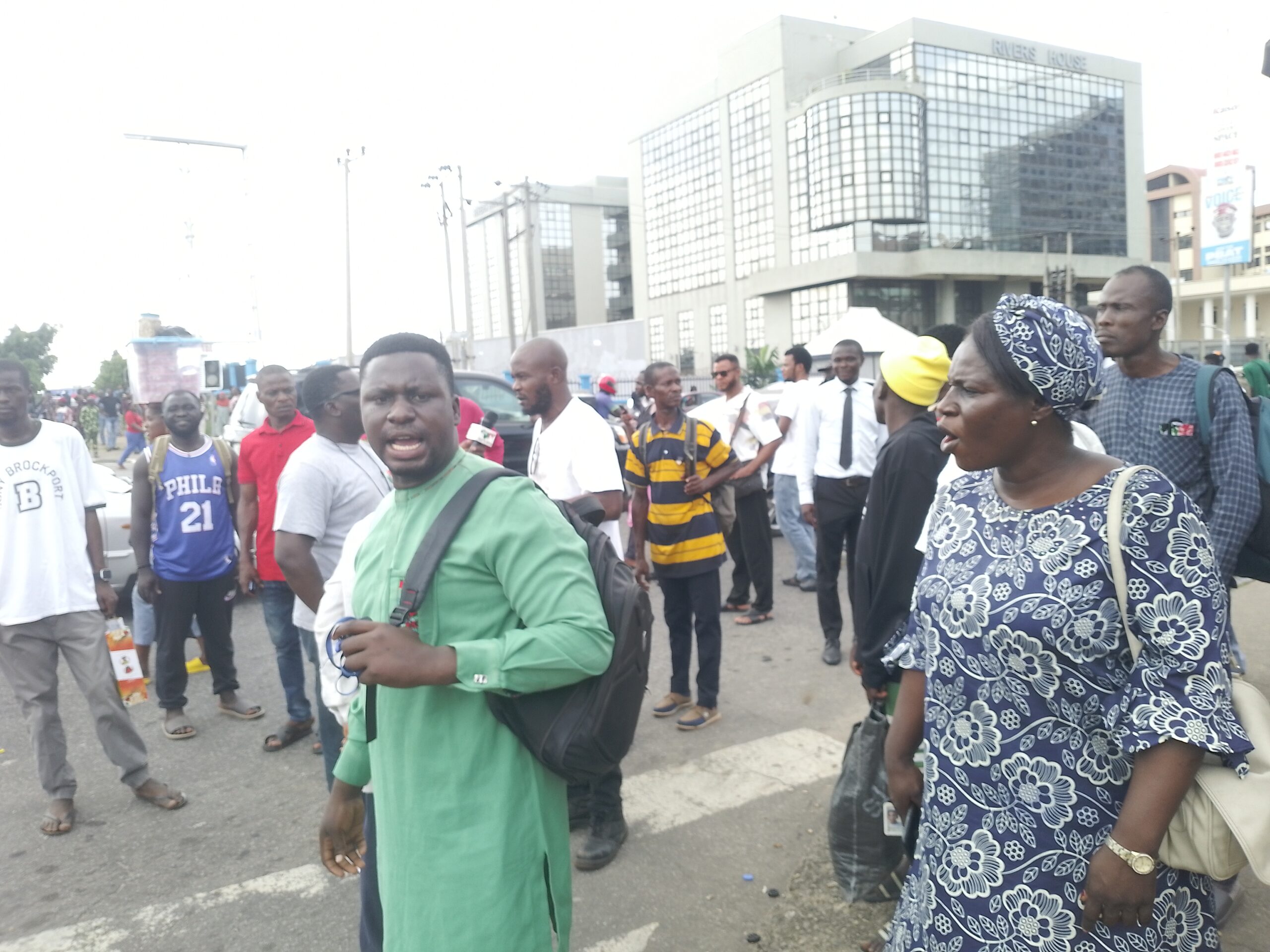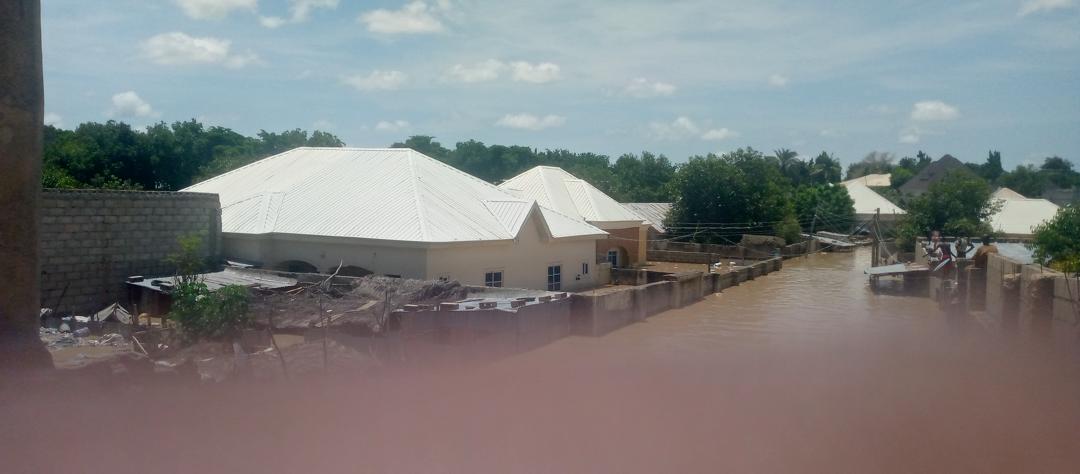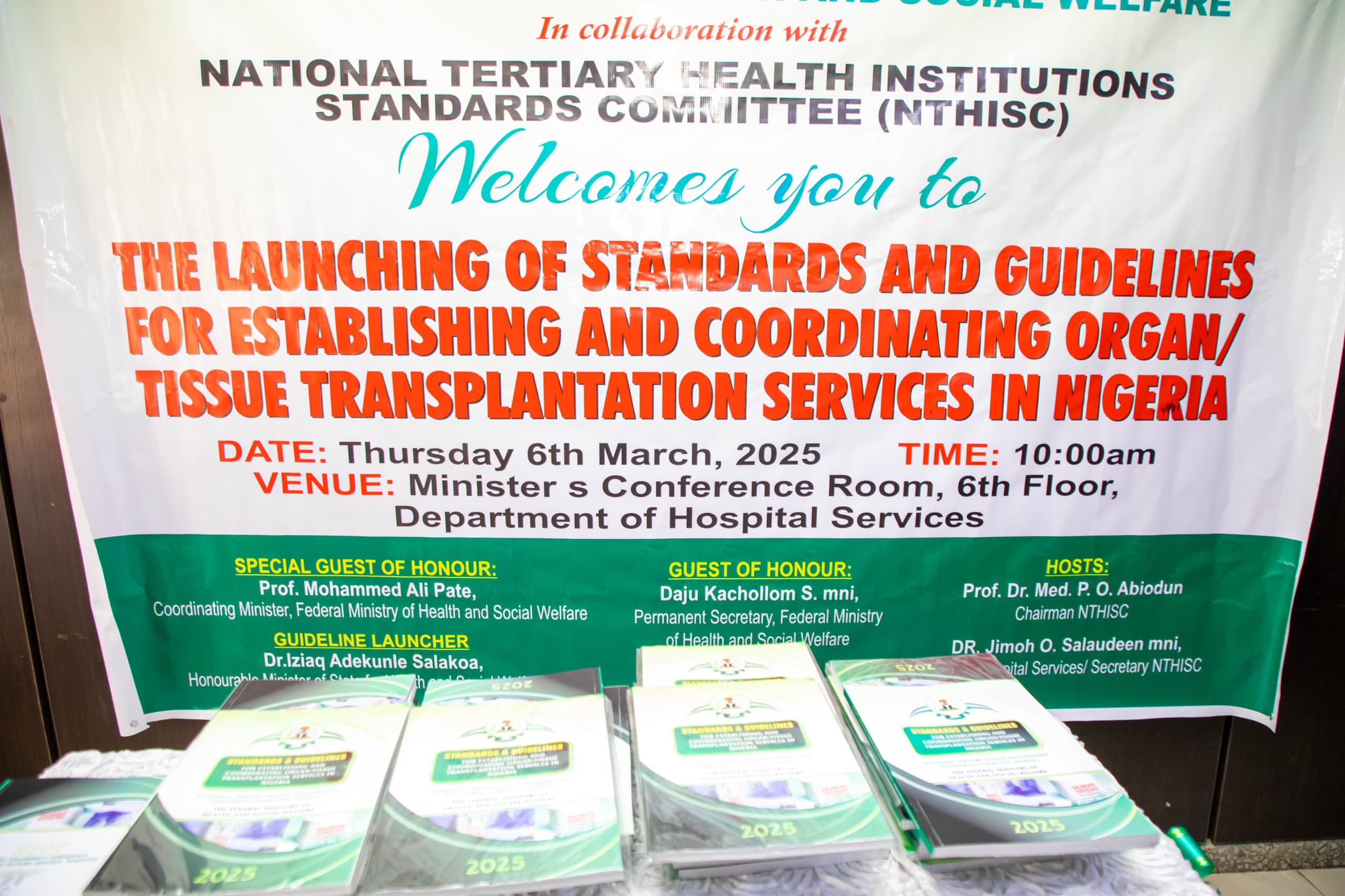
By Fatima Saka
The Federal Government has reaffirmed its commitment to overhauling Nigeria’s health system, announcing sweeping new accountability, financing, and service delivery measures at the close of the 2025 Health Sector–Wide Joint Annual Review (JAR) held in Abuja.
Reading the official communiqué on behalf of the ministry, the Permanent Secretary of the Federal Ministry of Health and Social Welfare, Daju Kachollom, said the Review has set a new benchmark for coordination, transparency, and performance across the sector.
The meeting, held from 12th to 14th November, in Abuja convened nearly 1,000 delegates, double the previous year, drawn from federal and state governments, development partners, the private sector, traditional and religious institutions, civil society, academia, ALGON and the media.
The Federal Government emphasised that the Review marks a decisive step in accelerating implementation of the Nigeria Health Sector Renewal Investment Initiative (NHSRII) and fast-tracking progress toward Universal Health Coverage (UHC). For the first time, the JAR was preceded by state-level reviews, a development the government described as proof of deepening national ownership of the SWAp principles of One Plan, One Budget, One Report and One Conversation.
A major highlight was the official signing of the UHC Compact Addendum, which expands the agreement to private-sector actors, LGAs, traditional institutions and other ministries, while integrating emerging priorities and strengthening accountability through clearer “Ask-and-Offer” frameworks.
Five Spotlight Sessions showcased progress in maternal and neonatal mortality reduction, improved primary healthcare functionality, health security strengthening, social health insurance coverage, digital transformation, and local manufacturing under the value-chain reforms.
The government also oversaw a first-ever open dialogue on corruption and fiduciary risk, highlighting issues such as ghost workers, irregular payments and weak fiscal tracking, while committing to stronger digital financial management and stricter oversight mechanisms.
Major national products launched at the Review include the National CEmONC Facility Readiness Assessment Report, the Climate and Health National Adaptation Plan, the Mini-DHS Framework, and the Second National Action Plan for Health Security (NAPHS-2).
Key Observations
The communiqué noted improvements in maternal and newborn health, with MAMII early-implementing LGAs recording up to 17% reductions in maternal mortality. However, critical gaps persist: only 32% of facilities assessed meet minimum CEmONC readiness, while staffing deficits, commodity stockouts, and low SRH service availability continue to challenge PHC performance.
Domestic health financing expanded through State Health Insurance Schemes and BHCPF, covering more than 2.4 million vulnerable Nigerians. Yet declining external funding and delays in budget releases threaten programme sustainability. The government reiterated the urgent need for predictable vaccine financing and improved budget execution at federal and state levels.
Data governance is improving, but inconsistencies in validation, completeness, and timeliness at subnational levels remain major barriers to accountability.
The Review acknowledged progress in local manufacturing, with over 40 private entities now engaged through the Presidential Value Chain Initiative. Sustained incentives, regulatory clarity and guaranteed demand were identified as critical for scaling up production and reducing import dependency.
Resolutions
The Federal Government and stakeholders agreed on several landmark decisions, including:
Operationalise the expanded UHC Compact Addendum by Q1 2026 with a co-created implementation framework and strong tracking mechanisms.
Adopt biometric verification across all PHCs and insurance platforms to eliminate ghost workers and strengthen HRH performance.
Roll out digital expenditure-tracking and biometric attendance across BHCPF facilities by Q3 2026.
Accelerate national scale-up of the MAMII programme, close financing gaps, strengthen referral systems, and expand to new LGAs guided by Mini-DHS data.
Improve SRH access through policy domestication, sustainable financing, integration of services, and community engagement.
Strengthen PHC financial management systems, linking facilities with financial institutions for real-time visibility.
Expand health insurance coverage to enroll five million Nigerians, including one million vulnerable people, by end-2026.
Advance local production, operationalise Medipool, and transition at least 20 essential commodities to domestic manufacturing by 2026.
Commit to full release of Nigeria’s vaccine procurement counterpart funding under the revised Gavi accountability framework.
Strengthen State and LGA systems, including emergency response, DRF accountability, and inter-agency collaboration among NPHCDA, NHIA, NMEP, NCDC, NAFDAC and others.
Institute data-guided resource allocation through periodic resource mapping, National Health Accounts and strengthened public expenditure reviews.
The Federal Government said it will continue working with bilateral and multilateral partners to advance a co-financing arrangement in line with global commitments to donor alignment and sustainable health financing.
The communiqué was formally issued on November 14, 2025, in Abuja.





